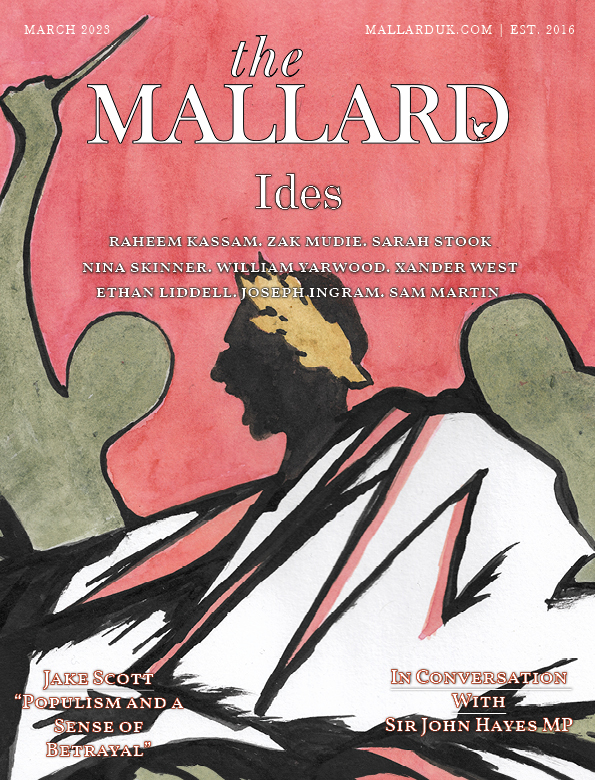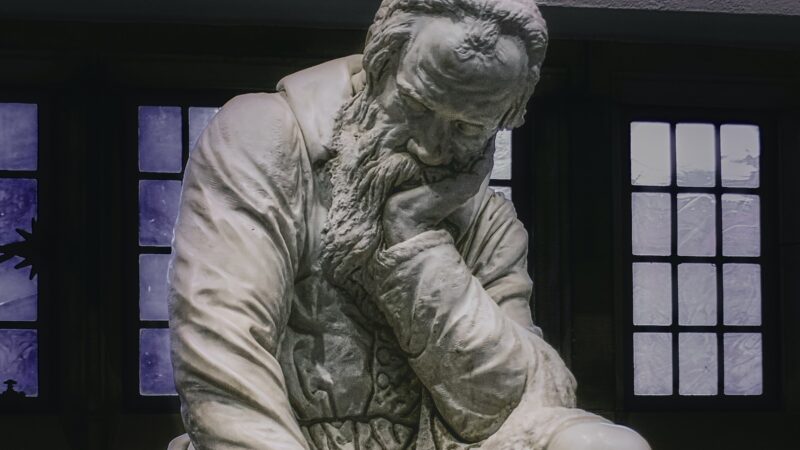The Decline of Public Intellectualism (Magazine Excerpt)
POC are just like you and me. Sure, there are technical, mostly visual, differences between us. However, considered in the grand scheme of things, such differences are quite trivial.
Far from a weakness, this diversity is a strength; we all play a role in moving our democracy forward, and ensuring the public realm remains a lively and vibrant place. Of course, by POC, I am referring to People of Commentary.
POC are everywhere. Turn on the television and you’ll be greeted by POC. Scroll through any social media feed, and without much effort, you’ll find posts made by POC. Walk through the middle of London, and soon enough, you’ll sight chattering congregations of POC.
Given the apparent omnipresence of POC, one eventually begins to ask: where did they come from? Were there this many POC in Britain 50 years ago? Yes, I know I’m pushing my luck.
In all serious consideration, the voice of commentators, self-described or not, for better or for worse, constitutes a large chunk of public, especially political, discussion in Britain.
Conversely, and it would seem simultaneously, we have witnessed a rapid decline of public intellectualism over consecutive decades. Indeed, the noted absence of intellectuals from public life is underscored when most people struggle to define what an intellectual actually is.
Many are inclined to believe that the British are, by their very essence, an anti-intellectual people. Distrustful of abstraction, they very much prefer a hodgepodge philosophy of empirical observation and sainted “Common Sense” – both of which, especially the latter, intellectuals supposedly and infamously disregard.
An immediate glance at ongoing matters would support this position. Despite the fundamental disagreements constituting the “Gender Wars”, it is clear that both sides consider Britain, thankfully or regrettably, uniquely resistant to transgenderism. In my view, this can be traced to our Anglo-Saxon forbearers, who gradually removed the notion of gendered words in our language besides the ones which speak to the empirical (that is, biological-anatomical) distinction between men and women.
All this said, empiricism isn’t exactly synonymous with “anti-intellectualism”, just as the names Francis Bacon, Thomas Hobbes, David Hume, George Berkeley, or Edmund Burke rarely come to mind when discussing “anti-intellectuals”. We can safely assume that intellectuals primarily deal in ideas, but we can’t safely assume said ideas are purely rationalistic and abstract.
Herein lies the distinction: there’s a difference between contemporary “anti-intellectualism”, which has contributed to the explosive ascendancy of POCs, and the “anti-intellectualism” which is distinctly “intellectual” in nature – pertaining to the limits, rather than uselessness, of intellectualism-as-abstraction. As such, we should consider post-war anti-intellectualism as a degeneration of a healthier and more measured position.
Without placing too much weight on the origins of Britain’s post-war anti-intellectualism, I would argue that such a precise attitude be attributed to the popularity of the ideas of George Orwell, as conveyed by cultural osmosis, rather than extensive reading; specifically, his preoccupation with ‘Ordinary People’ and the ways in which they are different to the class of ‘Intellectuals’ whom Orwell sought to disassociate himself.

This is an excerpt from “Ides”. To continue reading, visit The Mallard’s Shopify.

